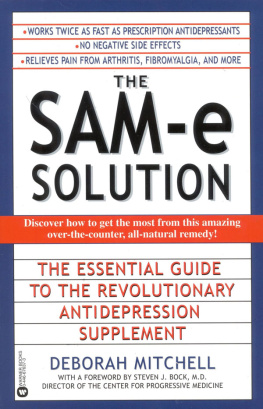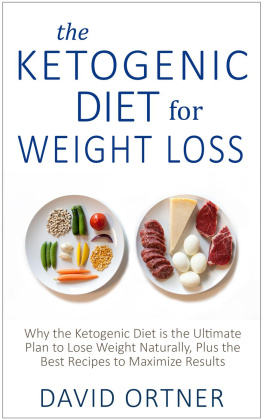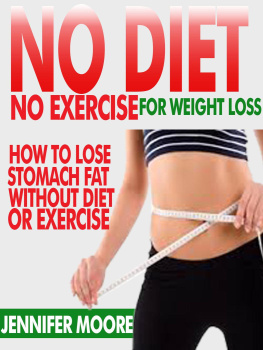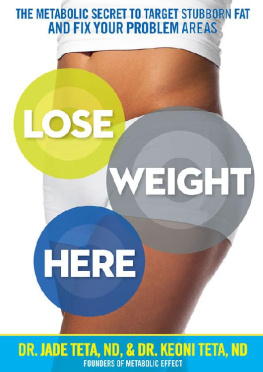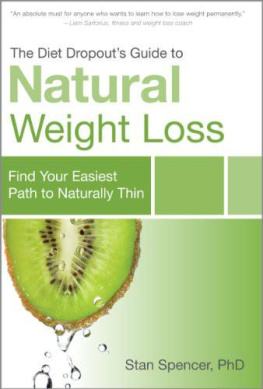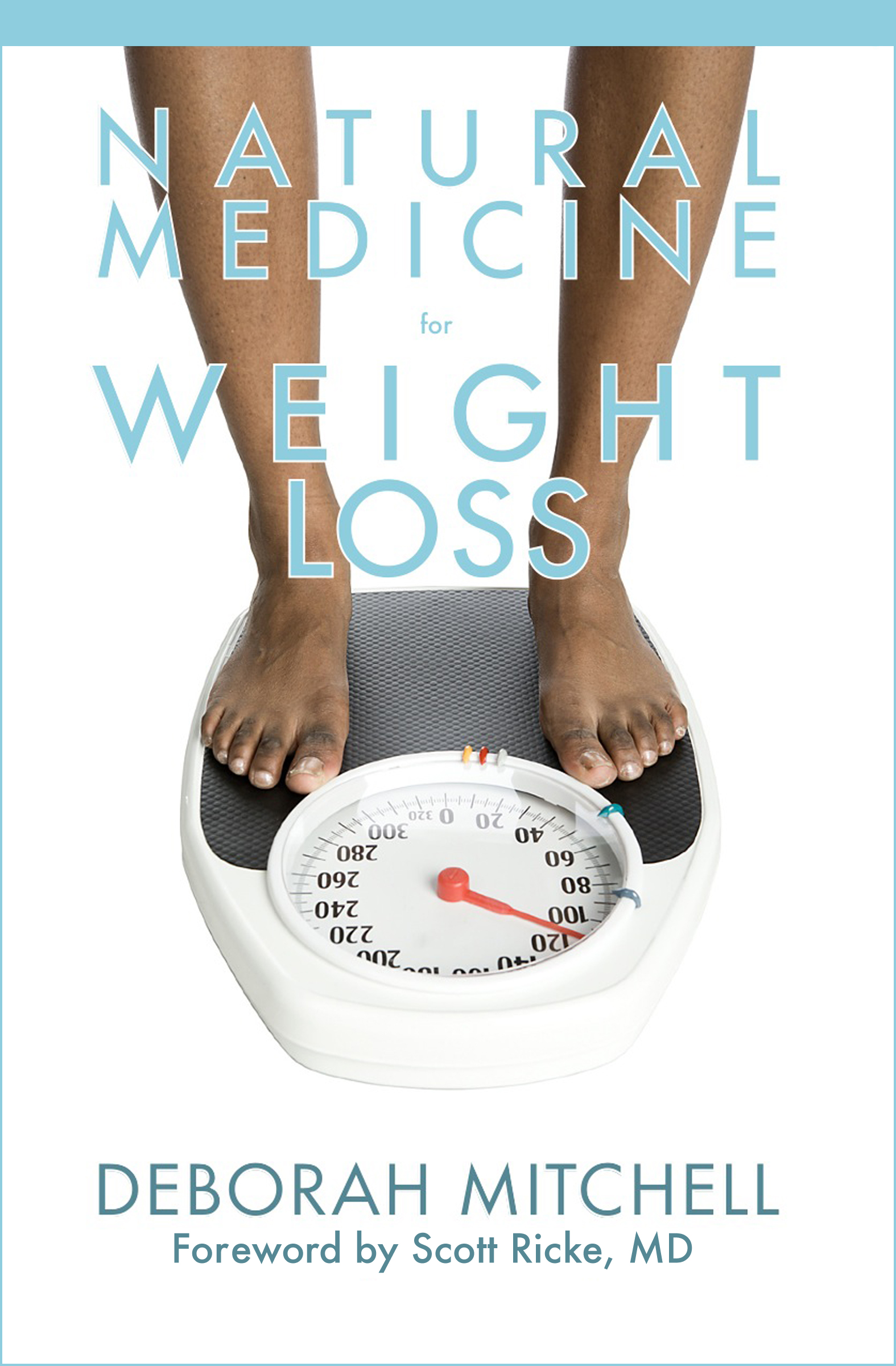Foreword
One thing I am most committed to in medicine is forever altering the perception that overweight people are that way on purpose; that they are overweight because they are fat and lazy, or they lack discipline. One of the myths of our culture is that obesity is a disease of willpower rather than a complex metabolic or endocrine disorder.
There is no other medical condition that is more shrouded in misconceptions, inaccurate information, stereotypical thinking, and just plain mean-spirited accusations than obesity. How many times have you overheard someone look at an overweight person and say that they have done it to themselves, that they dont care how they look, or why dont they just exercise more and just say no to food? How many of those same thoughts have you had yourself or about yourself?
Such moral overlays might be useful if obesity were a theological dilemma. How many overweight people have been made to feel guilty or shameful about their weight? Did that ever produce the desired result? If being overweight is a simple problem of willpower, then why are overweight people unable to will themselves thin?
The reason is not that they are unwilling; it is because they are unable. Since there is no medical benefit to being overweight, to imply that over 100 million obese people in this country actually will themselves to be overweight, or that they are happy about it, is implausible and defies logic. They may be resigned to it, perhaps even accept it, but never happy about it. Ask any adult if they like being overweight; ask any child.
Like other metabolic and endocrine disorders, obesity is a disease that may be inherited, chronic, active, progressive, and lethal. More than 300,000 people die every year from the direct effects of being overweight. Fatal strokes, heart attacks, and cancer interfere with a long and fruitful life.
To date, researchers have identified at least seven different genes and ten different hormones that are associated with being overweight. Maybe we can start to look at overweight as a symptom of an untreated medical condition rather than a character flaw.
We view diabetes and other endocrine disorders as medical conditions that are worthy to be treated medically, yet not obesity. No one has an objection to a diabetic person taking insulin. Its helpful to understand that an overweight person suffers from food cravings for salt- or sugar-based foods, and they do not experience normal fullness. This leads to overeating and involuntary weight gain. These food cravings are uncontrollable. Overweight people can no more control their appetite than diabetics can control their blood sugar by willpower alone. Diabetics do not need to be lectured or given a lesson in morality, they need insulin. Give them that and they get better.
As with diabetes, the medical literature clearly indicates that when overweight people are treated, they get better. This book addresses the vast amount of research that has been conducted in the field of natural medicine that provides overweight people with tools, and a better understanding of what has been going on for most, if not all, their lives.
Natural Medicine for Weight Loss succeeds in giving people information and options that allow them to make a choice. Either they start managing the disease, albeit imperfectly, or they allow the disease to continue to manage them.
People can effectively use tools if they understand how to use them. This book gives people access to taking back some control of their lives, at least when it comes to addressing obesity.
The material contained in this comprehensive book is important because people need all the information available in order to make informed choices regarding their approach to weight loss. This is an excellent reference for a wide range of natural treatment modalities. It is well researched and well thought out, and it gives the reader useful information grounded in the literature, distinct from someones personal opinion about the subject.
Finally, the disease of obesity can start to be seen through a different filter: a medical filter through which overweight people can start to be appropriately treated rather than inappropriately judged.
--P. Scott Ricke, M.D.
Director
The Institute for Medical Weight Loss
Tucson, Arizona
Introduction
You know diets dont work. You know because youve probably tried a few, perhaps dozens. They dont work because they dont offer you workable, positive, long-term tools and goals to help you lose weight and keep it off, safely and healthily. They leave you hungry and unsatisfied. Most of them dont help you understand the reason why you are overweight or why you overeat, or help you understand how your mind and body are intimately connected in your quest for a thinner, healthier you. Sure, you can lose 5 or 10 pounds in a week or two by eating just grapefruit or by taking diet pills. But you cannot live on grapefruit or diet pills for the rest of your life nor would you want to! And with the controversies and recalls concerning diet drugsincluding the recall of phen-fen and Redux because of the apparent link with valvular heart problems and primary pulmonary hypertensionusing natural weight loss methods becomes ever more appealing.
Even the word diet sounds depressing and negative. Diet brings to mind deprivation, starving, fasting, celery and carrots, hunger pangs, uncontrollable cravings unpleasant thoughts and feelings, to be sure. As if these things werent enough, we live in a society that places extraordinary pressure, especially on women, to be thin. The media message is thin = beauty, success, acceptance, which is not only unfair but untrue.
Thus, if you want an affirming, healthy, enjoyable, and satisfying way not only to shed pounds but to acquire a positive attitude about yourself and how you look and feel, this is the book for you. This book is about making healthy, nondrug, natural choices concerning weight loss. Not only does it help you develop a healthy relationship with food, physical activity, and your body; it also gives you the information you need to incorporate weight loss helpers and boosters into your life. There are dozens of herbs, nutrients, supplements, and natural medicine techniques that can help make losing weight easier and safe. This book helps you choose among some of the more effective holistic approaches that facilitate weight loss. Combined with the latest information and tips on nutrition and stress-reducing, life-affirming activities also contained in these pages, you can soon be on the path of a positive weight loss experience. Youll learn how your body and mind work together to create the person you are now and the person you want to be: lighter physically, lighter in spirit, and empowered with energy. Once you do, youll realize that you can lose weight and be healthy, confident, poised, and successfulwithout the need to look like a fashion model.


